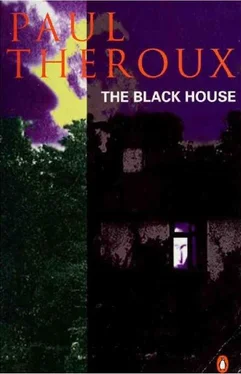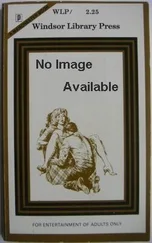Paul Theroux - The Black House
Здесь есть возможность читать онлайн «Paul Theroux - The Black House» весь текст электронной книги совершенно бесплатно (целиком полную версию без сокращений). В некоторых случаях можно слушать аудио, скачать через торрент в формате fb2 и присутствует краткое содержание. Год выпуска: 1996, Издательство: Penguin Books, Жанр: Современная проза, на английском языке. Описание произведения, (предисловие) а так же отзывы посетителей доступны на портале библиотеки ЛибКат.
- Название:The Black House
- Автор:
- Издательство:Penguin Books
- Жанр:
- Год:1996
- ISBN:нет данных
- Рейтинг книги:4 / 5. Голосов: 1
-
Избранное:Добавить в избранное
- Отзывы:
-
Ваша оценка:
- 80
- 1
- 2
- 3
- 4
- 5
The Black House: краткое содержание, описание и аннотация
Предлагаем к чтению аннотацию, описание, краткое содержание или предисловие (зависит от того, что написал сам автор книги «The Black House»). Если вы не нашли необходимую информацию о книге — напишите в комментариях, мы постараемся отыскать её.
The Black House — читать онлайн бесплатно полную книгу (весь текст) целиком
Ниже представлен текст книги, разбитый по страницам. Система сохранения места последней прочитанной страницы, позволяет с удобством читать онлайн бесплатно книгу «The Black House», без необходимости каждый раз заново искать на чём Вы остановились. Поставьте закладку, и сможете в любой момент перейти на страницу, на которой закончили чтение.
Интервал:
Закладка:
“How long have you lived here?” Emma was asking the Motherwells.
“Two years,” said Peter. “The Stricks have been here five—they’re old-timers!”
“We’re starting our seventh year,” said the vicar proudly. He smiled at his wife. But she looked apprehensive, as if she were being called upon to speak.
Munday made himself a drink and then wandered to a side table where he had spotted an African carving. He picked it up and turned it over and weighed it in his hand.
“Kamba,” he said.
“I know,” said Awdry, who had followed him to the table. “I’m told they’re becoming quite valuable.”
“Nowadays they make them in a factory in Nairobi,” said Munday. “To sell to tourists. Horrible shiny things.”
“I’ll show you some more,” said Awdry, and led Munday to the library. “Here, these are rather fun.” On a table, covered by a kaross of tawny sewn deerskins, there were rows of small carved figures and African clay pipes and bracelets of silver. On the bookshelves there were more carved things, many with woodworm; several Munday recognized as the work of his people. On another table there was a collection of snuffboxes, some silver and brass and others of plugged bamboo. A water-buck’s head stared serenely from under long lashes on the wall between two windows, and over the fireplace was the dark brutish head of a buffalo.
“Head shot?” asked Munday.
“Heart,” said Awdry, “but he kept coming. Then I winged him. It took three shots to bring him down. My gun bearer bolted.”
“That shows he had some common sense.”
On other sections of the walls there were hide shields and crossed spears, and ebony masks grinning under mops of straw hair, with grotesque mouths, like simplified masks of comedy and tragedy superimposed.
“I suppose you recognize this,” said Awdry. He showed Munday a soapstone carving of a woman with exaggerated breasts and a pot belly.
“Fertility figure,” said Munday. “Probably Luo, from the look of it, and,”—he held the piece and glanced at Awdry—“without question, a fake.” There were daggers mounted on a varnished board, rusty-bladed knives with beaded handles, and some Masai broadswords in neatly stitched leather sheaths. Munday looked for his stolen dagger, but saw none that resembled it.
“Didn’t you say in your lecture how African tools look so much like weapons?”
“They do the work of both,” said Munday. “That panga,” he said, pointing at a foot-long machete. “It’s used for clearing land, but a Bwamba would say—” There was a loud rapping in the front hall.
“That must be one of the guests,” said Awdry. “Excuse me.”
Munday quickly searched the room for his dagger; he looked on the top shelves and opened a Zanzibari chest. He could not find it, but he was convinced that Awdry had it, and he considered stealing one of Awdry’s own daggers. They were an inconvenient size. He slipped one of the silver snuffboxes into his pocket and took up his drink and started out of the room. But the theft made him self-conscious. He looked back and saw the high active fire in the hearth as having a life of its own, making a sound like ridicule—intimidating, accusing. He turned to go, but the fire crackling in the empty library remained, a witness to his theft, a crazy threatening presence. Munday returned to the table and put the snuffbox back.
In the living room he headed for Emma, who was talking to Peter Motherwell. But Awdry called to him, “I want you to meet an admirer of yours.” It was the new guest, Caroline Summers. She was Munday’s own height, but gave the impression of being taller. She wore a long blue sleeveless dress of a silky material which clung and emphasized her shape. Her neckline was cut low, revealing part of the rounded undersides of her breasts; a small blue jewel on a chain rested at an angle just between her breasts which, unsupported, sloped against the soft cloth that draped them. Though she stood still and held a wine glass without drinking from it, Munday found himself staring at the slight movements in the cords of her neck and throat and the thin poised bones of her hands. He felt he could read those bones and the shadows on the planes of her face.
“I’m delighted to meet you,” she said, and took the wine glass in two hands. Munday saw the jewel right itself between her breasts.
“We’ve just been discussing your lecture,” said Janet Strick.
“No complaints, I hope,” said Munday. Outlined in the long blue cloth was her leg, from hip to ankle; its unadorned completeness more than its shape attracted him.
“Only praise,” said Caroline.
Drawn to her he avoided her eyes, and having examined her he looked closely at the others, Motherwell with his pipe, Awdry’s Foreign Office tie and suede shoes, Strick’s flowered shirt and tie in matching material, and next to him Janet Strick in her short skirt. Janet was pretty, her skin was young, she had a smooth face, a large head and a good fleshy figure. Her hair was long; Caroline’s was short, and yet there was something luxurious about Caroline, the message on her mouth, the angle of her chin, the bones lifting at the base of the neck, the distinct edges of her hips and the thrust her dress hugged. She was not thin, but her short hair and the proportions of her features made her appear so, the way she stood—her weight on one leg—the length of her fingers which circled the glass. From the moment he saw her he wanted to be near her, to touch her; he felt a mingled desire and respect, the same helpless yearning he had experienced watching Alice crouch in her denim jeans. But he saw in Caroline a power that could be terrible, not the youthful pleasingness of Alice, but the sensual wisdom of a woman who knows that she is within a few years of losing her beauty. Though she had a veneer of glamour, what cowed him was the destroying bloom he saw in her bones. She could hold him and crack him.
She said, “I imagined you’d be very severe and scientific.”
“Perhaps I am.”
“No, you’re not.”
“My Africans used to do imitations of me, behind my back. They thought I was a bit of a taskmaster.”
“Did that upset you?”
“They can be tricky little bastards.”
Then she did something that aroused Munday; she closed her eyes and smiled and rocked her head back on her long neck.
“I agree,” Awdry said, and he began to tell a story of African treachery.
In an effort to conceal his submissive interest in Caroline, Munday pretended to listen to the story (it concerned an African’s clumsy forgery of a local chief’s official papers), for he sensed the interest was obvious on his face. But attempting to suppress it he felt it more deeply, as he had with Alice. He remembered that he had fled the daughter, not the mother, and he saw himself as a weak man, incomplete, who had denied himself passion, though he had seen it enacted close to him, while he had stayed on its periphery, observing, sometimes mocking, never venturing nearer. He saw that his severity was fear, and what virtue he had always claimed for himself was cowardice.
“What happened to the African?” Caroline was saying.
“Him? Oh, we let him go,” said Awdry. “The Crown had a case against him, but we weren’t sure how it would go down locally. He was in the wrong, of course—everyone knew that. As it turned out, he would have been safer with us.”
“Safer?” Caroline became interested. “But you said he was free.”
“He got a dose of village justice,” said Awdry. He winked at Munday. Munday shrugged.
“That sounds ominous,” said Caroline.
“It was quite a field-day,” said Awdry. “Mob of people pounced on him, sank their teeth into him and spat out the pieces. Everyone was laughing—Africans find torture frightfully amusing. When the poor chap died they assumed he must have been guilty.”
Читать дальшеИнтервал:
Закладка:
Похожие книги на «The Black House»
Представляем Вашему вниманию похожие книги на «The Black House» списком для выбора. Мы отобрали схожую по названию и смыслу литературу в надежде предоставить читателям больше вариантов отыскать новые, интересные, ещё непрочитанные произведения.
Обсуждение, отзывы о книге «The Black House» и просто собственные мнения читателей. Оставьте ваши комментарии, напишите, что Вы думаете о произведении, его смысле или главных героях. Укажите что конкретно понравилось, а что нет, и почему Вы так считаете.












